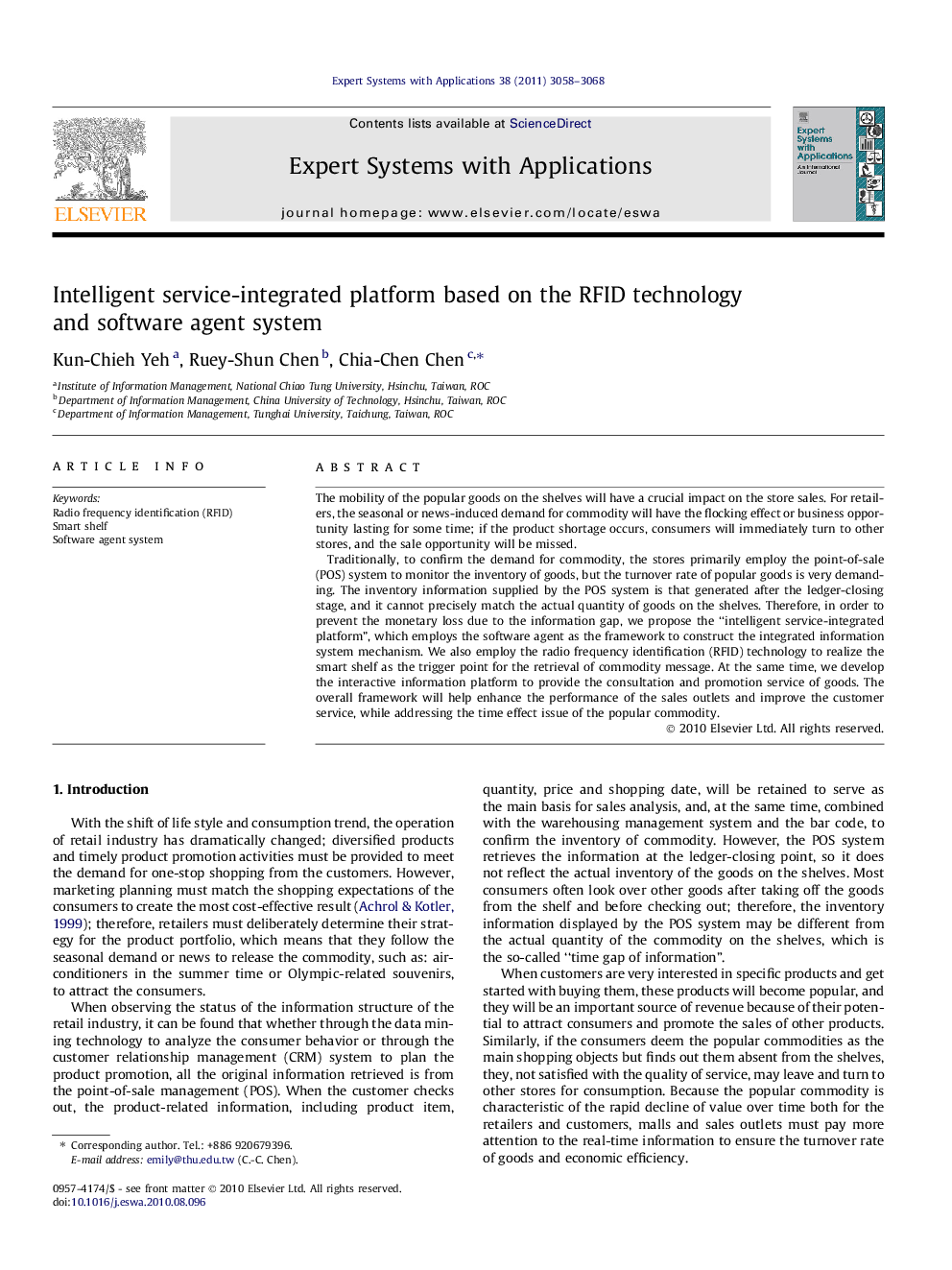| Article ID | Journal | Published Year | Pages | File Type |
|---|---|---|---|---|
| 385959 | Expert Systems with Applications | 2011 | 11 Pages |
The mobility of the popular goods on the shelves will have a crucial impact on the store sales. For retailers, the seasonal or news-induced demand for commodity will have the flocking effect or business opportunity lasting for some time; if the product shortage occurs, consumers will immediately turn to other stores, and the sale opportunity will be missed.Traditionally, to confirm the demand for commodity, the stores primarily employ the point-of-sale (POS) system to monitor the inventory of goods, but the turnover rate of popular goods is very demanding. The inventory information supplied by the POS system is that generated after the ledger-closing stage, and it cannot precisely match the actual quantity of goods on the shelves. Therefore, in order to prevent the monetary loss due to the information gap, we propose the “intelligent service-integrated platform”, which employs the software agent as the framework to construct the integrated information system mechanism. We also employ the radio frequency identification (RFID) technology to realize the smart shelf as the trigger point for the retrieval of commodity message. At the same time, we develop the interactive information platform to provide the consultation and promotion service of goods. The overall framework will help enhance the performance of the sales outlets and improve the customer service, while addressing the time effect issue of the popular commodity.
Research highlights► Smart shelf resolves the “bullwhip effect” of information bottleneck. ► RFID with software-agent meets overall demands coming from consumers and managers. ► Intelligent service-integrated platform enhances the performance of sales outlets. ► Interactive service systems draw the consumer and products closer by “last-mile”.
